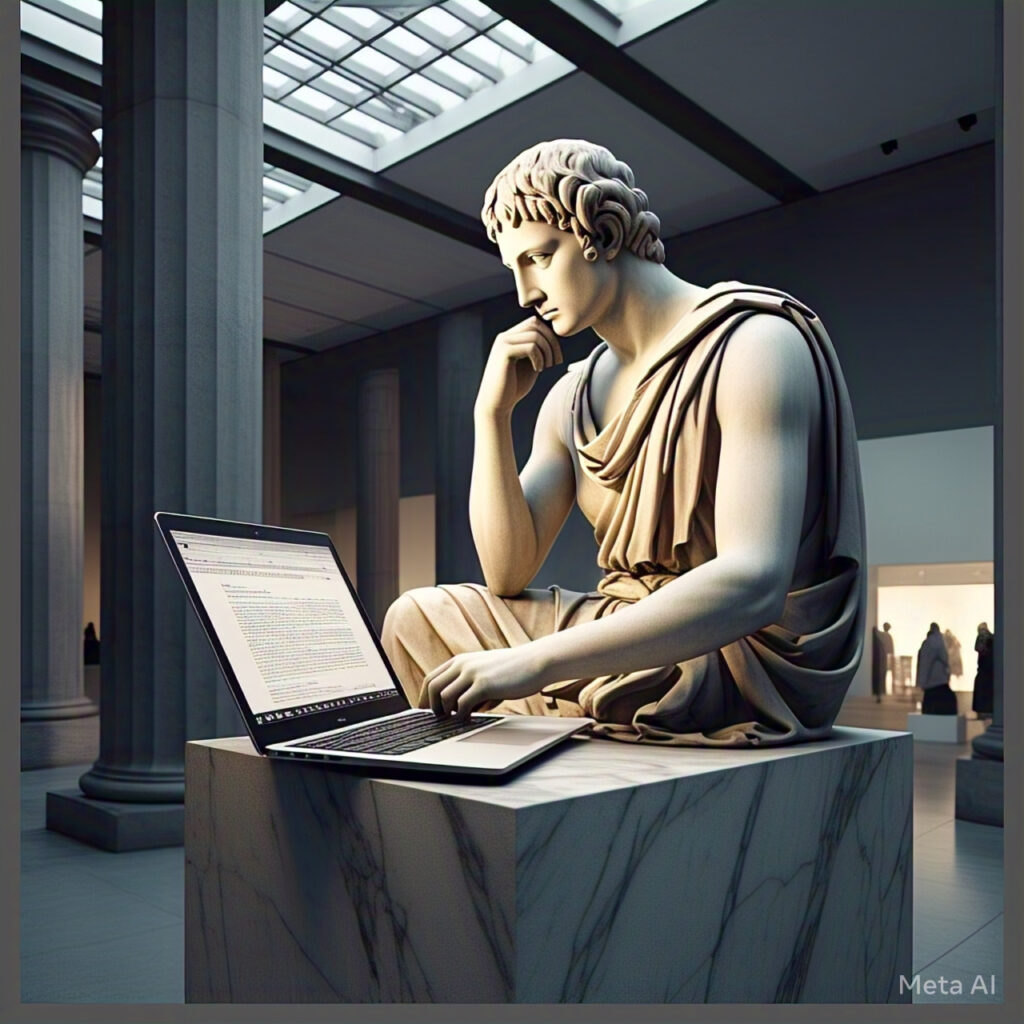Creating a positive AI-infused world is up to us

Governments and corporations are trying to create effective regulations and guidelines to govern AI. They have much more work to do in promoting ethical and responsible AI use. Users also have personal responsibilities to avoid harming themselves and others. Here are some ethical issues related to AI:
Major societal issues
- Job loss, economic shifts, income inequality
- Over-reliance on AI, diminishing human capabilities
- Digital divides between those who have AI knowledge and access and those who do not
- New risks for civil and political rights as AI facilitates data collection and mass surveillance
- Global AI power imbalances as nations with advanced AI exert political, economic and military dominance over less-developed countries
- Loss of human control over AI systems
Intellectual property
AI models are frequently trained on copyrighted works without the creators’ permission. This raises legal and ethical questions about ownership. Treat AI output like any other information – don’t assume it’s free to use without checking the rights on the original source. If you use AI output, significantly modify it and add value with your own ideas. Favor AI tools that are transparent about their training data and licensing.
Environmental impact
The development and use of AI systems is increasing energy demand, as are cryptocurrency, streaming video and other systems. Don’t think of these tools as limitless resources that can be carelessly wasted or used for trivial purposes.
Privacy and safety
Sharing personal information with an AI system may put yourself or others at risk. The information could be accessed and used in ways beyond your control by government authorities or private corporations. This is especially relevant in authoritarian states, where political control and mass surveillance is common. Configure AI settings so your data is not used for training new models, and never share information about others without their permission.
Bias and fairness
AI models are developed using vast amounts of information, much of it drawn from English language sources. As a result, AI models can inherit prejudices and factual errors found in the source materials. AI output may also be influenced by government propaganda and censorship or corporate restrictions. It is up to AI users to recognize biases and not perpetuate false or misleading narratives and stereotypes.
Misuse of AI
AI tools can generate fake photos, videos and audio. They can provide instructions for mounting disinformation campaigns, cyberattacks or making weapons of violence. Even seemingly innocuous uses, such as AI-created social media posts, can spin out of control. Use these powerful technologies with utmost care.


